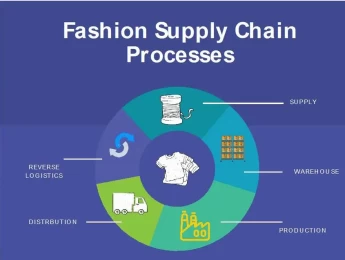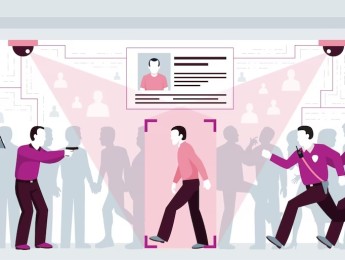Businesses in the past focused their values and company goals solely on developing their own economic gain and delivering a good return on investment to grow. However, as times have changed, many stakeholders, benefactors, or funding resources expect businesses to not only provide that same return that they used to but also benefit other people, places, or community functions to be eligible for investment.
While this may seem like a tall order, considering your corporate social responsibility and factoring this into future strategic planning can give your company a better position on the investment ladder and make potential clients and customers use your service over others purely due to its benefits for the wider community. For this reason, CSR actually goes hand in hand with growing profits, benefiting everyone.
However, exploring CSR and pitching this to potential stakeholders can be challenging for some businesses. Creating a focus on sustainability and community development and growing your return on investment opportunities requires careful consideration and a sound implementation procedure to future-proof the business and gain buy-in from external funders and internal employees.
Upon completion of this course, participants will be able to:
- Identify stakeholder expectations and plan to meet them.
- Apply the ISO 26000 definition of social responsibility to your business plan.
- Manage sustainable risks and create effective contingency plans.
- Assess the corporate impact on the local community.
- Plan negotiation and persuasion techniques to increase stakeholder engagement.
- Manage bad CSR practices and make beneficial changes.
- Monitor and measure the positive impact of CSR on your business.
- Create reliable reporting tools to assess your changes and make amendments when required.
- Use SEAT toolbox techniques to develop a forward-thinking plan.
- Plan for successful implementation of CSR in your business.
This course is designed for anyone involved in fundraising for the business, dealing with stakeholders and clients, or developing a sound, forward-thinking and strategic business plan focusing on sustainability. It would be most beneficial for:
- Fundraising Managers
- Planning Managers
- Change & Control Managers
- Project Managers
- Operations Directors
- Operations Managers
- Business Owners
- Business Account Managers
- Financial Officers
- Managing Directors
- Human Resource Professionals
- Public Relations Personnel
- Supply Chain Managers
This course uses a variety of adult learning methods to aid full understanding. Participants will view presentations to discover the benefits of a sustainable business model that covers corporate social responsibility. They will take part in practical exercises and quizzes to develop action plans to aid their local community best while removing areas of risk and increasing profits.
The participants will undertake a negotiation and pitching role-play exercise to demonstrate how their organisation fulfils its CSR and discuss future-proofed planning models for developing their business.
Day 5 of each course is reserved for a Q&A session, which may occur off-site. For 10-day courses, this also applies to day 10
Section 1: What is Corporate Social Responsibility?
- How important CSR is to communities and businesses.
- Profit, people, planet - the triple bottom line.
- The definition of CSR - ISO 26000.
- Focus your CSR planning on the most important action points.
- How CSR has shaped businesses so far.
Section 2: What Does CSR Mean to the Local Community?
- What does CSR mean to your business?
- How your business could affect communities.
- Identifying your focus points.
- Pitching your business plan with a CSR focus.
- Managing sustainability risks.
- Major challenges in previous studies and how to avoid them.
Section 3: Responsible Corporate Behaviours in Supply Chain Management
- Managing supplier and vendor expectations.
- Creating a sustainable business network.
- Combating child labour in overseas transactions.
- Construction abuses and managing fair treatment.
- Sustainable material sourcing - raw materials.
- Local procurement vs overseas.
- Combating the unemployment deficit.
Section 4: Your Business’ Approach to CSR
- Identifying the potential risks of CSR.
- Tools and techniques to develop your CSR practices.
- Good and bad business conduct and how you can effect change.
- Your local resources and infrastructure.
- Your water, energy, and sanitation services.
- Supporting local education and health causes.
- Word-of-mouth marketing based on CSR.
- Local workforce training and initiation.
- Supporting SMEs.
Section 5: Measuring & Monitoring Impact
- What to do if your CSR methods are failing.
- What does success look like?
- KPIs in support of your CSR plan.
- How to find the right results.
- Reporting and monitoring methods and platforms.
Section 6: Reviewing Results & Feedback
- Creating a forward-thinking plan based on results.
- International measurement systems for wider impact.
- Implementing the Global Reporting Initiative (GRI).
- Learning from mistakes and growing business plans.
- Celebrating successes.
Upon successful completion of this training course, delegates will be awarded a Holistique Training Certificate of Completion. For those who attend and complete the online training course, a Holistique Training e-Certificate will be provided.
Holistique Training Certificates are accredited by the British Assessment Council (BAC) and The CPD Certification Service (CPD), and are certified under ISO 9001, ISO 21001, and ISO 29993 standards.
CPD credits for this course are granted by our Certificates and will be reflected on the Holistique Training Certificate of Completion. In accordance with the standards of The CPD Certification Service, one CPD credit is awarded per hour of course attendance. A maximum of 50 CPD credits can be claimed for any single course we currently offer.
Categories
Management & Leadership,- Course Code MG2-123
- Course Format Classroom, Online,
- Duration 5 days









